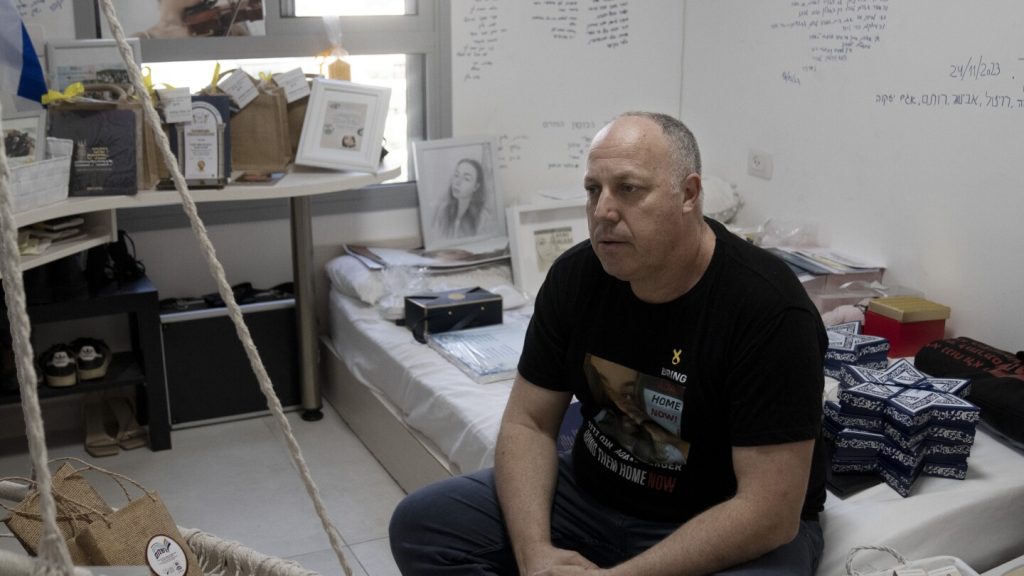Many families in Israel are facing a dilemma this Passover as they struggle to celebrate freedom amidst the ongoing conflict with Hamas. Alon Gat, whose mother was killed and other family members abducted in a Hamas attack, finds it difficult to celebrate when his loved ones are still in captivity. With over 1,200 people killed and around 250 taken hostage in the attack, the festivity of the holiday is overshadowed by the pain and uncertainty of those still missing.
Passover is traditionally a time for Jews to come together with family and commemorate their liberation from Egypt. However, this year, many families are torn about how, or even if, they should celebrate. The ongoing crisis has affected not only those directly involved but also the wider community, with reminders of the cost of war casting a shadow over the usually joyous holiday celebrations. The government has scaled back festivities for Independence Day in May in light of the somber mood and potential public protests.
For those families directly impacted by the hostage situation, the pain and worry are palpable. Yarden Roman-Gat, who was held captive in Gaza for 54 days, describes the newfound appreciation for even the simplest freedoms like feeling the wind on her face or taking a shower without permission. As Passover approaches, families like the Gats will mark the holiday with a low-key dinner, overshadowed by the absence of their loved ones still in captivity.
The suffering in Gaza during the recent conflict has gone largely unnoticed in Israel, with the focus remaining on the repercussions of the October 7th attack. Negotiations for the release of the remaining hostages have stalled, making it unlikely they will be home in time for Passover. The global Jewish community has been called upon to include prayers for the hostages and Israel in their Seder observances, highlighting the relevance of the current situation in the traditional celebration of freedom.
As some families grapple with the pain of celebrating freedom while their loved ones are still missing or presumed dead, others find solace in holding out hope for their return. The revised Haggadah, a guide for the Passover Seder, includes excerpts from hostage families urging people not to succumb to hatred despite their suffering. Despite the challenges and uncertainty, families like Shlomi Berger’s remain resilient in their belief that their loved ones will eventually be freed, drawing parallels between the Passover story of liberation and their own journey from captivity to freedom.
Ultimately, this Passover will be a time of reflection, mourning, and resilience for many families in Israel as they navigate the complexities of celebrating freedom amidst ongoing conflict and uncertainty. The revised rituals, prayers, and guides created in response to the current situation reflect a community united in hope and determination to see their loved ones return safely. As families gather for the Seder table, the empty chairs and missing members serve as poignant reminders of the ongoing challenges faced by those impacted by the conflict with Hamas.


